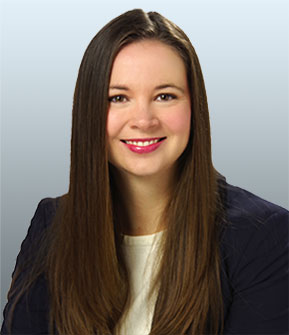New York Corporate Practice of Medicine and Its Impact on Medical Spas
Medical spas, or “MediSpas,” have become very popular throughout the country, including New York. For those interested in owning and operating a medical spa, understanding New York’s complex regulatory landscape governing medical spa businesses and their specific services will help achieve compliance and avoid costly fees and other penalties.
Ownership
New York enforces a strong corporate practice of medicine prohibition, which is a regulatory framework that prohibits anyone other than a licensed health care professional from owning and operating a medical practice or practicing medicine. This broad doctrine includes medical spas, which must be owned by a licensed physician as medical spas often offer services that qualify as the “practice of medicine” – the key distinction that causes medical spas to fall within the corporate practice of medicine prohibition and New York’s regulatory purview.
New York broadly defines the practice of medicine, and mandates both that medical services be performed only by a licensed physician or other licensed professional, and that the services rendered by each licensed individual fall within his or her scope of practice. Since medical spas offer services that qualify as the “practice of medicine,” they must operate as if they are a physician’s medical office and comply with associated restrictions or they could face adverse consequences, including Class E felony charges and monetary penalties.
Business Type
Beginning at the time the entity is formed, medical spas must comply with all aspects of New York’s corporate practice of medicine prohibition. New York state law restricts the type of entity that may operate as a medical practice — the entity must be either a professional service corporation, a registered limited liability partnership or a professional limited liability company. Forming these entities requires filing certain documentation, such as the owner(s’) professional licensure and address with the New York Department of State and seeking approval through the New York State Education Department, which can take several weeks or even months. After both the New York State Education Department and the New York Department of State return evidence of successful filing and acceptance of all documentation, a properly formed medical spa may begin to operate and provide services. It is also important to note that, if forming a professional limited liability company, the owner must publish an announcement of its formation in a local newspaper, but the medical spa may begin operations in the meantime.
Management Service Organizations
Nonlicensed individuals cannot own a medical spa in New York, but they can own and operate a management service organization (MSO) supporting the spa. MSOs assist professional entities with any and all nonclinical, administrative and operational aspects of the business. The physician owner(s) of the medical spa may enter into an agreement with the MSO that sets forth the financial terms for services provided by the MSO and establishes the responsibilities of both the medical spa and the MSO.
New York does not allow MSOs, or other nonlicensed professionals or entities, and professional entities to split fees, so the financial terms between the professional entity and the MSO cannot be based on volume or value of business and instead must be fixed, reasonable (in consideration of the services provided by the MSO) and agreed upon in writing prior to any services rendered. The physician owner of the medical spa should ensure that any arrangement with an MSO does not involve control over the medical spa’s bank accounts, decisions involving patient care and/or treatment plans or the hiring of clinical staff. It is also very important for the physician owner to remain actively engaged with the medical spa and not to allow the MSO to essentially run the entire business, especially any clinical aspects. MSO arrangements are closely scrutinized in New York, so ensuring compliance with New York case law and regulations from the outset is important to avoid corporate practice of medicine violations.
Individual Licensure
Medical spas must also comply with individual licensure requirements by ensuring that any and all individuals providing services on behalf of the medical spa are doing so within the scope of his or her license. For example, registered nurses providing services for a medical spa may not be able to perform all services requested by a client if the service exceeds the scope of his or her licensure and training, or they may otherwise risk “practicing medicine” without a proper license. Additionally, a delegating physician may face professional misconduct penalties if the physician delegates services to another practitioner that exceeds the scope of the practitioner’s license and/or does not appropriately supervise the practitioner.
Additionally, being a duly licensed professional providing services within the scope of his or her licensure may not necessarily be sufficient to remain compliant. Certain medical malpractice insurance carriers may require additional training in aesthetics or other medical spa services as a condition for coverage.
The outline of issues above is only a brief summary of initial matters to consider for potential medical spa owners and employees. Owning and successfully operating a medical spa includes understanding and complying with complicated state regulations from the formation of the entity and throughout the course of operations, and it is important to remain informed of any changes to those regulations in the event they impact business operations.
For any questions related to medical spa business compliance, please reach out to Tristan A. Potter or the Stevens & Lee attorney with whom you regularly work.


